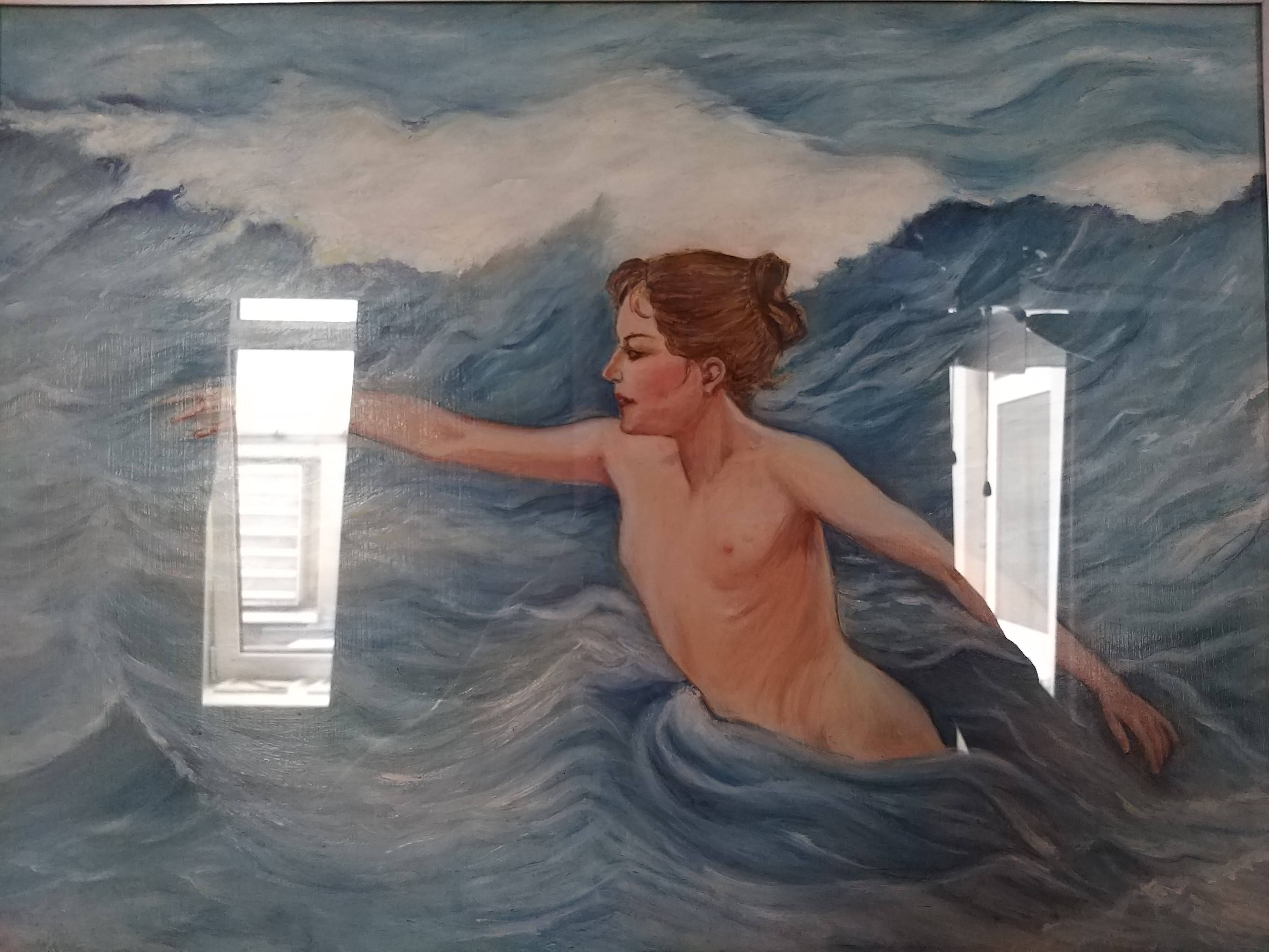
A piece of work made by a minority in the country in which you live from family story.
This is a painting that I was gifted by my grandmother a while back, she told me then it was made by someone in our family but over time I've forgotten who. I phoned her to ask about it, and making my grandmother talk about her past isn't exactly something I've done often before so it was rather uncomfortable for me. After asking some questions my grandmother has told me this:
The painting is made my great grand mother, of a girl bathing in the sea. (no sea in particular was mentioned) The woman bears a (in my opinion) resemblance to my grandmother in a way, though she denies this being the case. She does remember her mother, my great grandmother, using her hand as a reference for this painting.
My grandmother remembers it being made when she was around 14 years old, when she lived in the Hague. Her mother painted a lot. She has painted a portrait of my grandmother, which she still has. Most of her work has been either lost, gifted away to aunts and uncles or dissapeared under circumstances my grandmother has no knowledge of. Most of these paintings were made around 46-47, right after World War II.
Speaking to my grandmother I discovered my family does have a history of fine art, painting and drawing and strong draftsmanship. Naturally I was also once again confronted with my lack of knowledge of my family's history, something I would want to improve on, but feel uncomfortable about doing.
The artists name was: Erna Moll
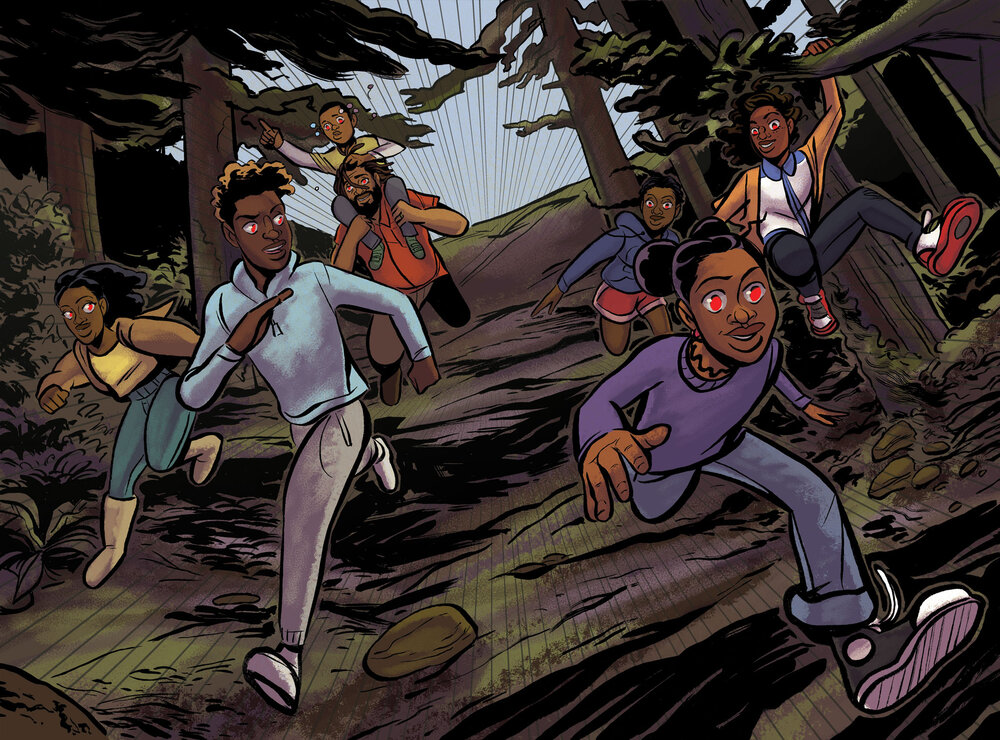
A piece of work made by a black woman from the internet Olivia Stephens
Olivia Stephens is an illustrator/comic artist from the Pacific Northwest that I found at the height of the #drawingwhileblack trend on twitter in which the drawing while black directory was brought more into the open.
I thoroughly enjoy Olivia's visual style and am looking forward to her debut graphic novel, "Artie and the Wolf Moon", which is expected somewhere next year. Artemis "Artie" Irvin is a 12-year-old girl with a love of photography and a fierce streak of independence, who's just discovered she comes from a family of werewolves. As she navigates her new reality, school bullies, and a first crush, she's also determined to find out how her human father died—and learns she isn't the scariest thing in the woods.
With this artist a commonality I see is an eagerness for storytelling, which is something that speaks to me as a creator as well. This artist is a black woman, and to see in her work that she's creating stories and characters that are similar to her or look like her, that sense of representation is something that's important to me.
In the media I typically consume I look for queer bodies, stories and experiences.
In this regard however, I am trying to branch out and learn about people who do not look like me, and do possibly not share my experiences.
a piece of design/work made by a public/community or doesn't have a clear author from my memory.
[Kind Words] (chill lofi-beats to write to) is a video game developed by Popcannibal, an indie game studio.
While the game does have a clear developer and publisher, it's the content of the game that's made by a community. In Kind Words, players anonymously write out their concerns and sorrows by making short requests for letters.
It's a digital community in which no one knows another person's name but takes time out of their life to write encouraging letters to others on the platform in need, al while listening to some relaxing tunes.
I feel drawn towards games with a focus on personal experiences and a sense of community. It's a theme I'm beginning to recognize in the majority of media I consume. While I'm not entirely sure what that says about me as an individual, it is something I want to incorporate in my own work.
I relate to this community in a way, looking for a place to talk about what keeps them awake at night, or experiences they feel they have to share somewhere without having a proper outlet for it.
Games can be a proper outlet.
A piece of design that is made by a queer person from a book
Dys4ia is an autobiographical game about the creators experiences with hormone replacement therapy. She states "My experience isn't anyone else's and is not meant to be representative of every trans person."
I first heard of this game casually skimming through this book I got not too long ago. "The queer games Avant-Garde, how LGBTQ game makers are re-imagining the medium of video games" by Bonnie Ruberg.
It is next on my 'to read' list, after "Dangerous Games" by Joseph Laycock.
Over the past year and a half I've been more aware of incorporating my experiences into my own work, now specializing in game design. This has given me a new world of inspiration to explore and interesting people to follow and watch. Queer video games that educate about the queer experience have been a niche I'm particularly fond of.
The relation between me and this creator is one of admiration. I admire Anna Entropy for the work that she has done and the games that she has designed. Dys4ia is one of the most well known games in the Queer Games avant-garde, and with good reason.
On a personal level seeing work like Dys4ia has helped me realize that it's quite alright to make work about lived experiences, even if those experiences are not necessarily universal. I've been lacking a biographical outlet in my own work, and I feel that it's alienating me from my practice.
The tools and visuals of this game are quite limited, and seeing that you can create a game with meaning and significant impact like this as well is encouraging.
I want to be in the circles where this work is talked about and produced, I want to make work like this.
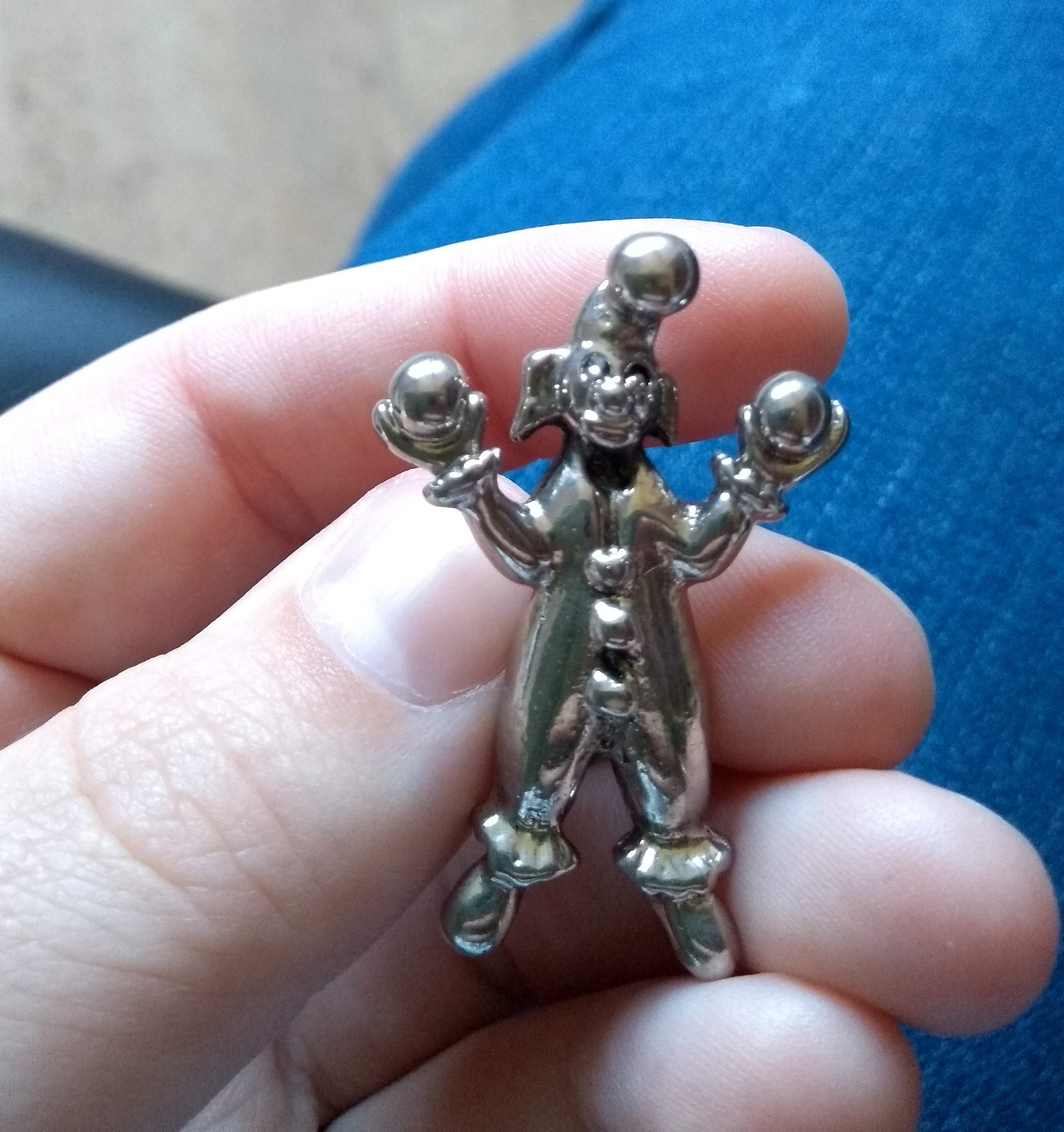
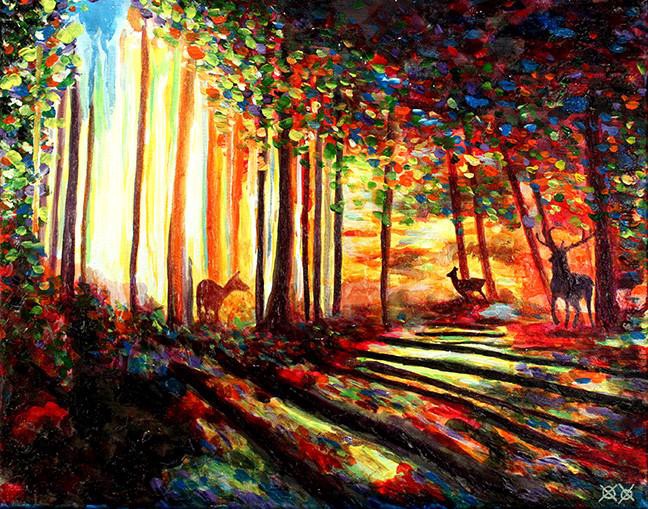
Paintings by John Bramblitt, someone who's visually impaired and he has lost all his vision.
Through the videos of Molly Burke on YouTube I learned that blindness is a spectrum, visually impaired people sometimes do have a percentage of their vision left and it's not all darkness how I always imagined it was. The blindness spectrum is the vast range between legally blind and totally blind. Legally blind is the measurable threshold at which a person’s eyesight is diminished to the point that they would qualify for legal/governmental assistance.
So with this artist having lost all of his vision, it's striking to me that he works with paint and visuals in such a way. It's very reminiscent of the work of Leonid Afremov an American-Israeli painter, whose work I have seen in real life. Both are impressionist artist, but from what I am aware of Afremov is sighted.
There is very little relation between me and John Bramblitt. I admire his work and the way that he's redefining what seeing or visualizing means through his artwork. His way of working, by using texture and feeling as a way to visualize what is happening, is something I for one have not stopped to consider a possibility. Socially, presenting yourself as legally blind brings a myriad of challenges and disadvantages that I would never be aware of until someone who is visually impaired points them out. Through him talking about his work, and people like Molly Burke sharing the blind experience to a greater number of people with the aim of raising awareness and bringing about change in their community is admirable.
https://bramblitt.com/
https://www.youtube.com/channel/UCwf9TcLyS5KDoLRLjke41Hg
This is a little clown brooch that I own, and while I have no idea who made it, it's the memories of receiving it that count for this piece.
This brooch was given to me by an older woman, who I still consider to be a dear friend. This woman has played an essential part in me developing my interests and artistic growth. I come from a background of performance arts like acrobatics, spiral poi, diabolo and the like. The person who ran this after school activity and I became fast friends.
By now we've drifted apart, and it's been over a year since I last was in touch with her. With this drifting apart it becomes more difficult for me to describe what she has meant to me in the past and what she does today. It's the sentiment that remains, not so much the memories now.
Being the child that I was, I looked up to her. She is one of the first people I remember encountering with a more open look on the world around us.
It is because of this that when I feel a disconnect from the world, I think of her.





Etherpad after guest lecture by Rosen Evenleigh:
https://pad.xpub.nl/p/group-2
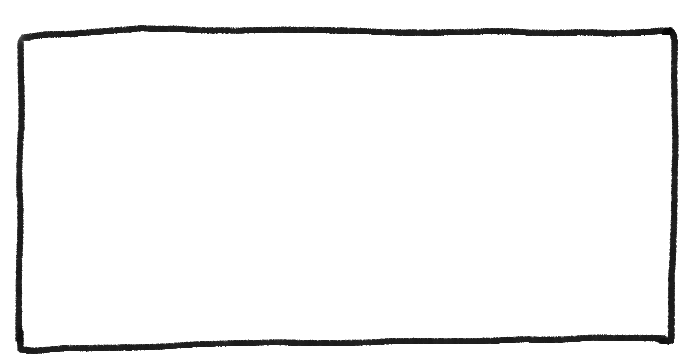


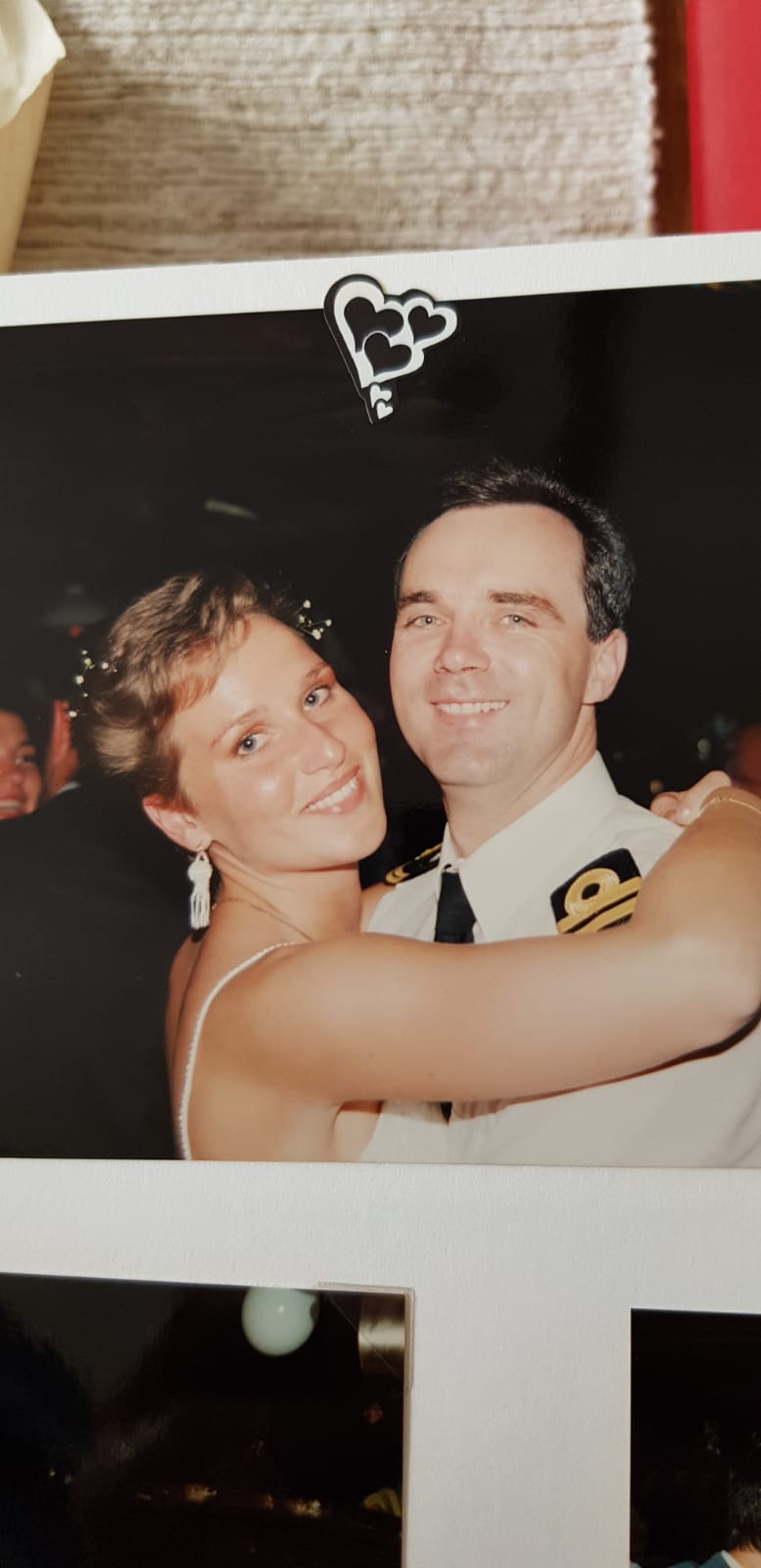
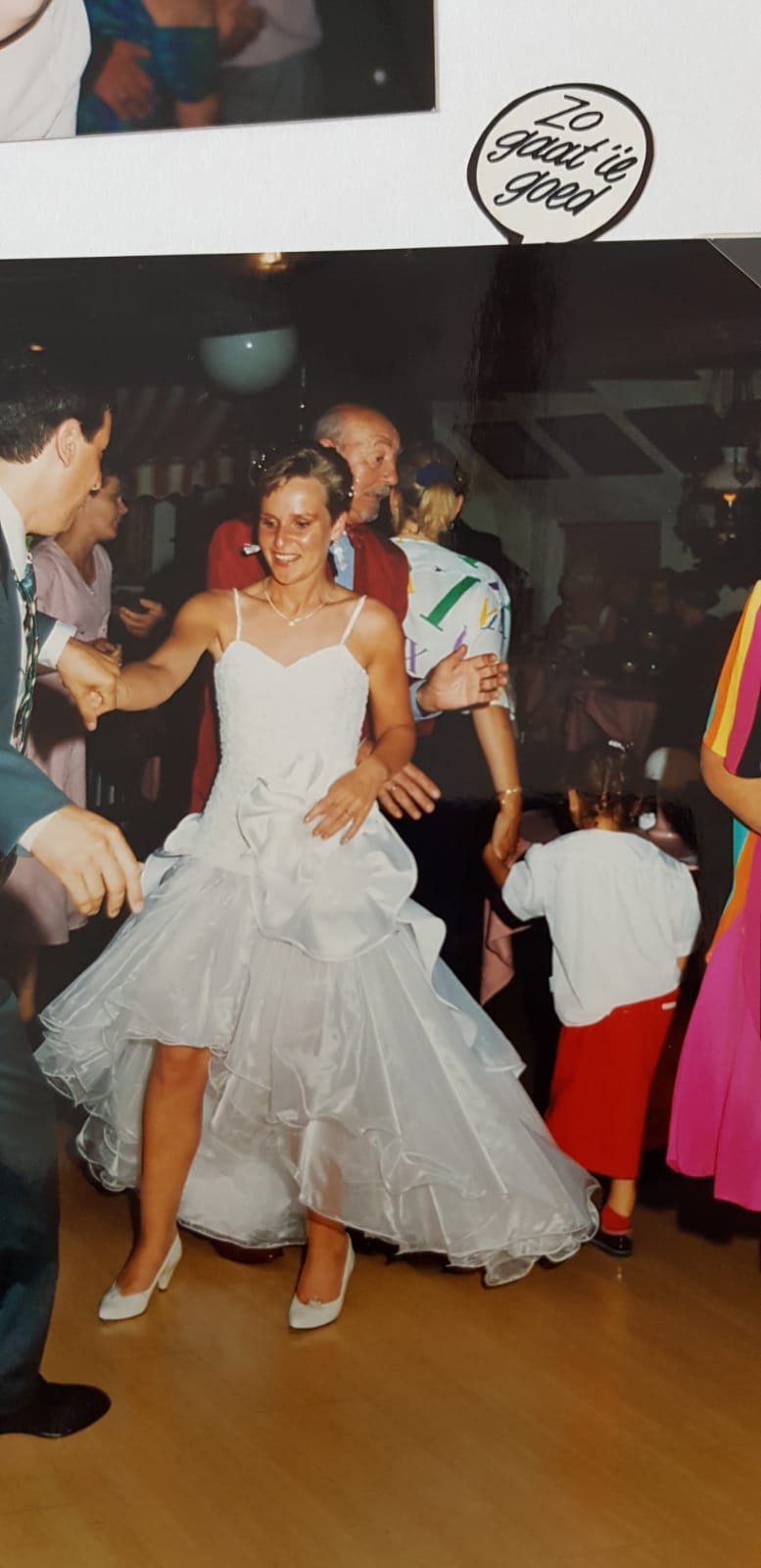
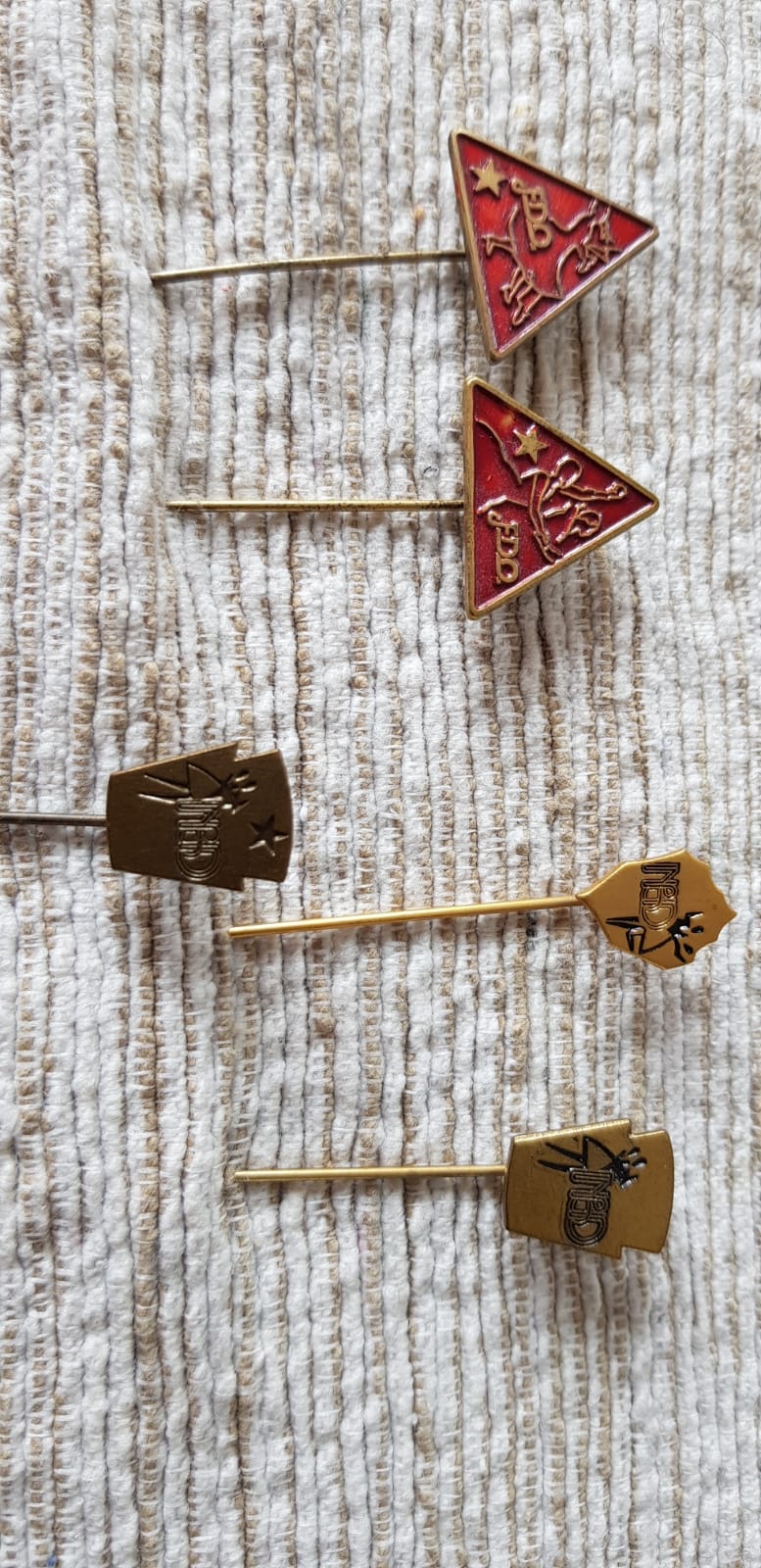
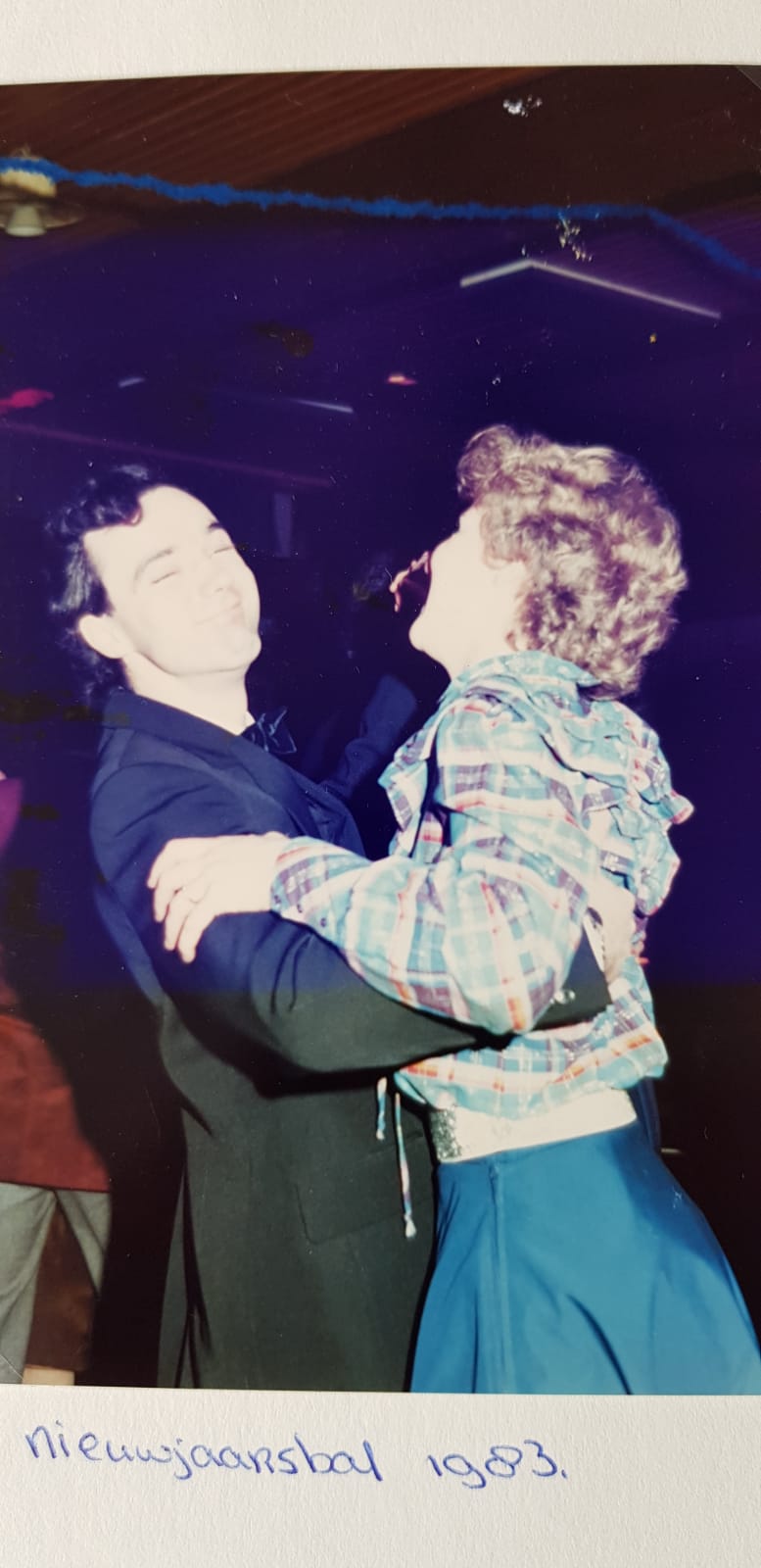
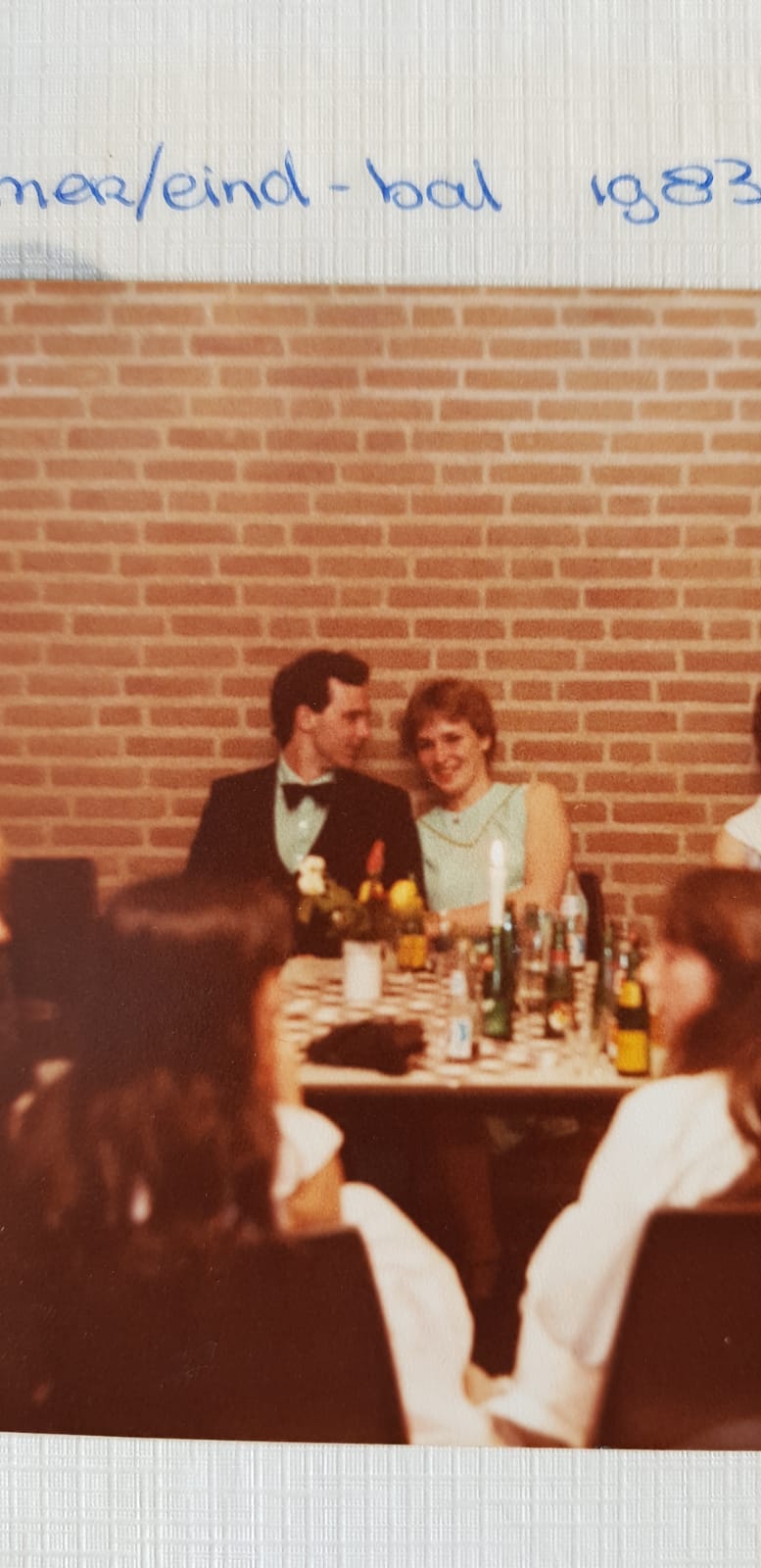
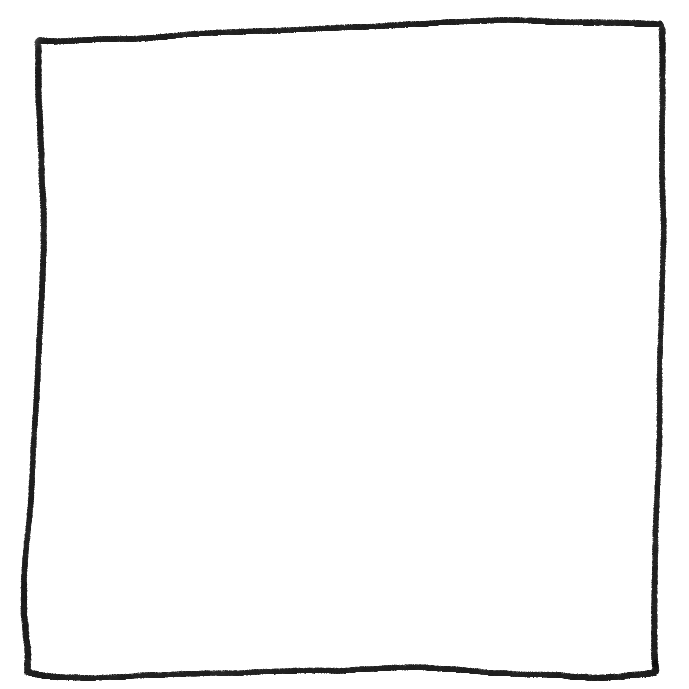
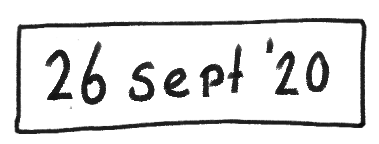
When I was younger, most of the stories my parents would tell me and my younger brother would start the same way.
"Way back when, at the dance school..."
Stories that start are the stories of how my dad got in trouble at school because he spent too much time dancing, and how my mother thought my dad was gross and old when they first met.
My parents used to dance, quite a bit and at a competitive level. It's how they met even. The stories they have about their time dancing are numerous, but these days they only dance at weddings of family members, or perhaps when I'm not looking.
I think my affinity for dance comes from this history. When I was really little, I would dance with my dad by standing on his shoes, and he would lead. I've by now passed the phase where I thought that was embarrassing, and now my partner and I are looking into starting some dance classes ourselves.
My parent's story from the dance school is quite hetero-normative, boy dances with girl with few to no exceptions. I wonder what that would be like if I were to take lessons with my girlfriend...
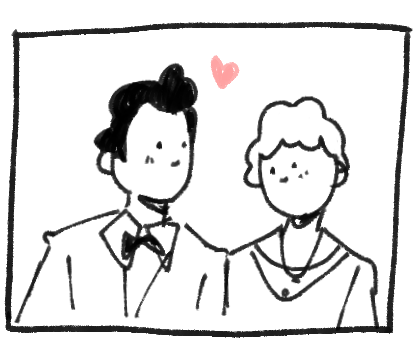
Talking about my cultural family history with my parents is rather strange, for me anyway. My parents keep telling me that my concerns are unfounded, and that I shouldn't hesitate to ask whatever I want to know. My idea of my families' history is filled with holes, holes I'm perhaps not particularly keen on filling. My grandfather and uncle from my mother's side have both looked into the family tree, so while I could have access to this information I feel that asking for it would be selfish.
Most of this lack of knowledge comes from the fact that I don't want to step on people's toes, upset them, to just let sleeping dogs lie.
My father's parents died when I was young, and aside from my aunt from that side we don't really keep in touch with that side of the family. My father told me he found out that his
older sister was actually his half-sister when he was 18 years old. Surely there is a story there, one I do not want to pry into in fear of making people relive bad memories.
My grandmother was born in Indonesia, lived there through WWII, and was locked into a Japanese concentration camp with her family. My grandmother and her sister can never seem to agree on the things that actually happens there. The older says my grandmother doesn't remember the details, she was so little after all.
My grandmother has given her recount of her personal history to my niece, which has been recorded in an album with photographs from my grandmothers' old photo books.
I didn't even know my parents owned a copy until I brought it up, needing to look into my cultural history for this class. I will visit my parents soon to have a look at that album again. I don't like talking to my grandmother about her past, even if my parents say they're sure she doesn't mind. It feels uncomfortable, like it's none of my business.
I suppose I, to a degree, feel that the painful parts of my family's history are just absolutely none of my business.
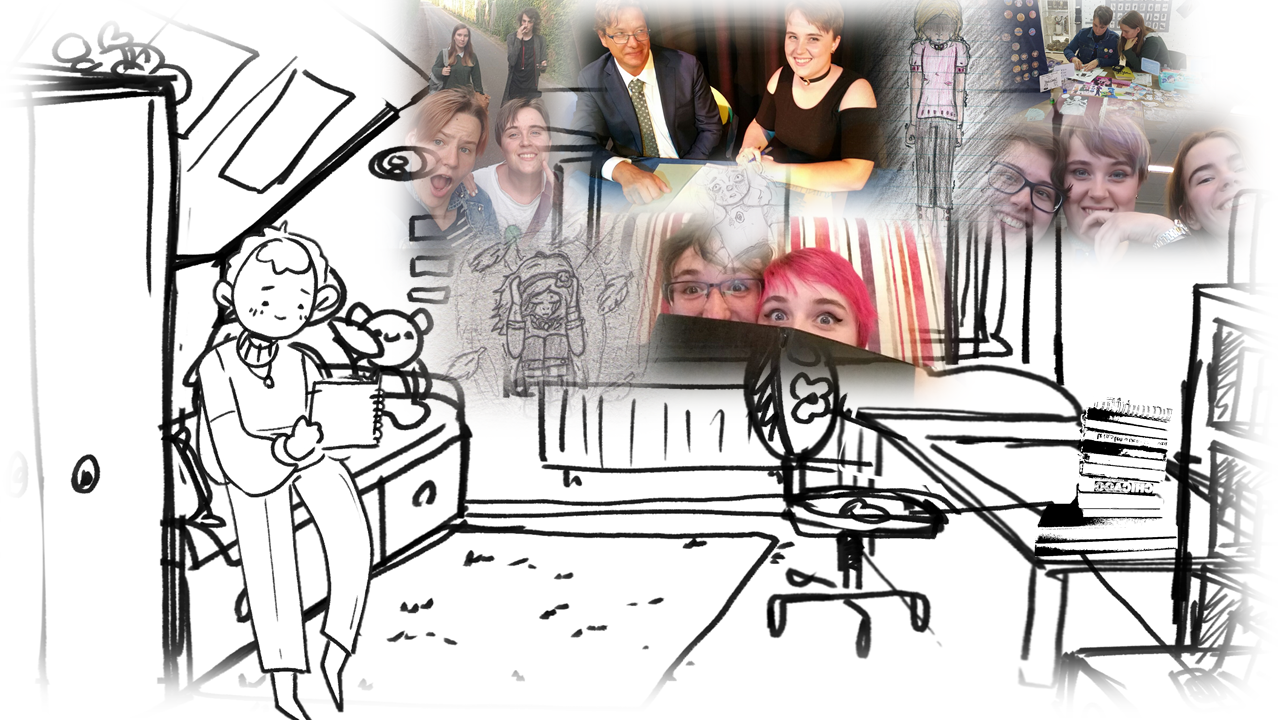
How/what do we perceive : take an item you've collected and identify what is in the background? (of our attention, of the objects)